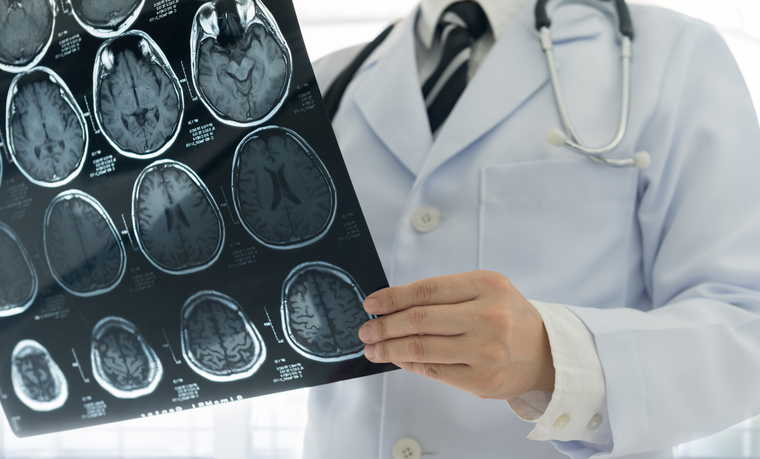Concussions are one of the most common types of accident injuries. They are caused by blunt trauma to the head that results in swelling and bleeding in the brain (and sometimes tearing of the brain tissue). A concussion often leads to a traumatic brain injury (TBI), a serious injury that often has life-changing consequences for the victim.
If you or a loved one was hit on the head in a car or motorcycle accident, a slip and fall accident, or a contact sports collision — or if they suffered hypoxia, a lack of oxygen to the brain — the result could be a TBI.
Causes of a Traumatic Brain Injury
Blunt trauma to the head and a lack of oxygen to the brain are the two most common causes of a TBI. Without oxygen, the brain tissue begins to die quickly, leading to damage. With a concussion, the concussive force of the brain hitting against the interior of the skull causes harm.
Any kind of accident that causes head trauma could be a potential cause of TBI. Contact sports like rugby or football could cause an injury, or an athlete could fall while performing a gymnastics trick or ice skating.
Car crashes are one of the leading causes of a TBI, as the head could hit the inside of the vehicle or the force of whiplash could injure the brain. Being ejected from the car often leads to a serious brain injury. Even with a helmet, motorcycle riders have a high chance of suffering a TBI.
Traumatic Brain Injuries Are Rated by Severity
A TBI could be classified as mild, moderate, or severe. Symptoms of a mild concussion or TBI often include headaches, confusion, blurry vision, or vertigo. Some people may have trouble with short- or long-term memory, but there is no lasting permanent damage. Rest and preventing re-injury are the best ways to heal a mild concussion.
Moderate TBIs can cause permanent brain damage. Sometimes, people may require occupational or speech therapy to regain their facilities, or they may have difficulty with short-term memory. Headaches are common and can take weeks or months to subside.
Personality Changes from TBI
Personality changes are also common — a formerly mild-mannered person could start lashing out. Depression is another result of a TBI and may require professional treatment.
A severe TBI changes the victim’s life forever. Some people slip into cognitive decline, with symptoms similar to dementia. They often require a round-the-clock caregiver or accommodations in a memory care facility. They have permanent brain damage and personality changes and could regress in their abilities with no hope of recovery.
Treating a TBI
The most common treatment for a brain injury is quiet, stress-free rest. Victims of a TBI should take care to avoid situations where their heads could get hit again. Surgery to reduce swelling or stop the bleeding in the brain can help, but for the most part, a concussion or TBI victim simply has to wait for the brain to heal itself.
Following the treating physician’s orders to the letter is critical.
You may be required to take several weeks off work if you work in a stressful environment, your job requires a lot of cognitive operations, or you have a high chance of further head injury. Occupational therapy or speech therapy can help you regain your abilities.
Long-Term Consequences of a TBI
A severe brain injury changes a person’s life forever. But it’s not just the victim who suffers.
Families may lose a primary breadwinner or see a once-promising student reduced to the mental capacity of a kindergartener. Another family member may be thrust into the role of caretaker, or the family may have to make a difficult decision to place their loved one in an assisted living home.
Contact Us Today
The personal injury lawyers at Saeedian Law Group in Los Angeles, CA, can help your family recoup these costs. Reach out to our dedicated team today.
